Grimy grill grates ruin flavor, cause flare-ups, and shorten grill life. Most people ignore them—until food sticks or tastes off.
Cleaning grill grates after each use and deep-cleaning regularly prevents rust, preserves flavor, and keeps your grill safe and ready for perfect cookouts.
If you’ve been letting buildup pile up, you’re not alone. But a few simple habits and tools can make a huge difference. Let’s start with the basics.
Why should you clean your grill grates?
Cleaning grill grates is about more than appearance. It affects safety, taste, and performance.
Dirty grill grates increase the risk of flare-ups, carry bacteria, and transfer burnt residue to food, ruining flavor and posing health risks.
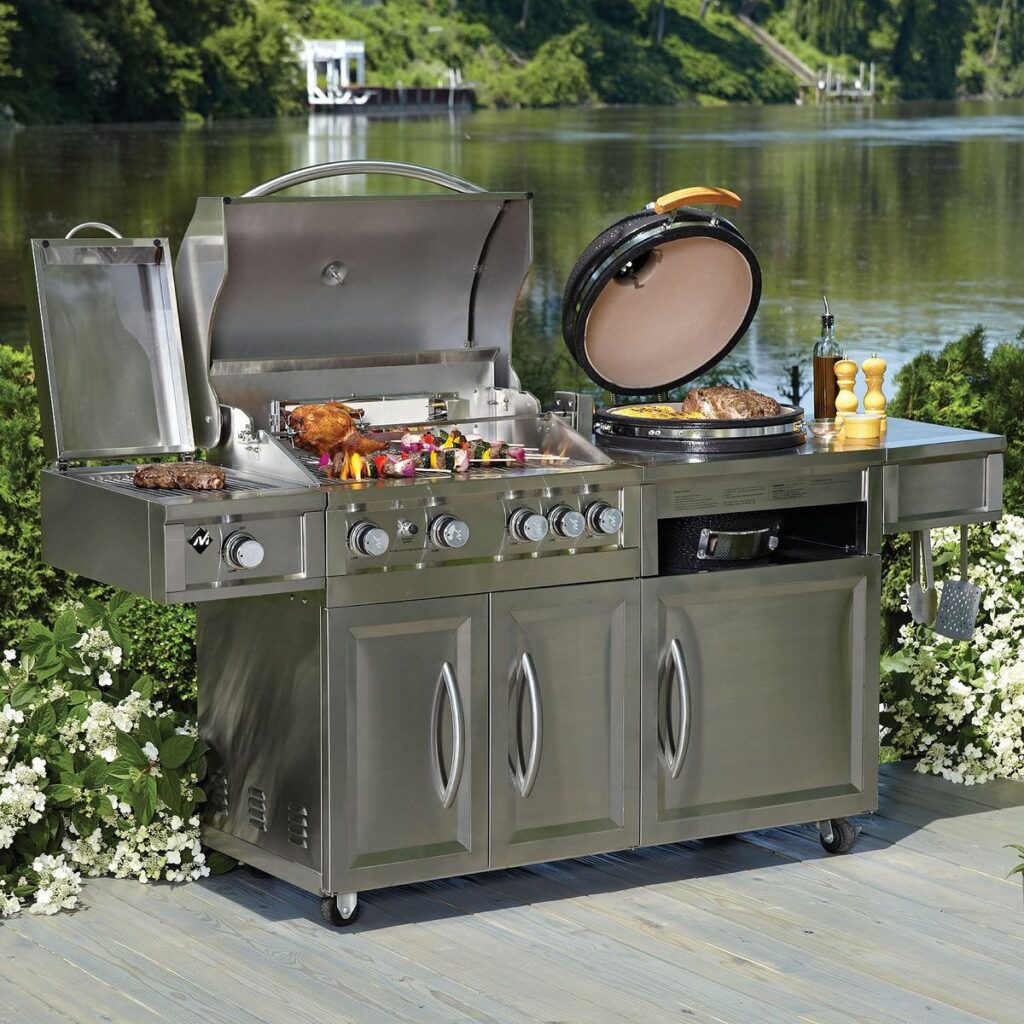
When old food and grease bake onto metal bars, they create uneven heat spots. This makes meat cook badly—some parts raw, others burned. Plus, burnt food particles release acrid smoke that settles on fresh food. Cleaning helps avoid all this.
You also reduce the chance of rust. Grease traps moisture, which speeds up corrosion. That’s especially true with cast iron and untreated steel grates. Scraping off debris regularly helps keep your grill working longer.
If you’re cooking for others, a clean grate shows respect. No one wants to eat a steak marked with last month’s chicken. It’s a matter of hygiene and pride.
What happens if grill grates aren’t cleaned?
Neglect leads to grease fires, rust, and bad-tasting food.
Leaving your grill grates dirty causes buildup that leads to corrosion, dangerous flare-ups, and food contamination from old residue.
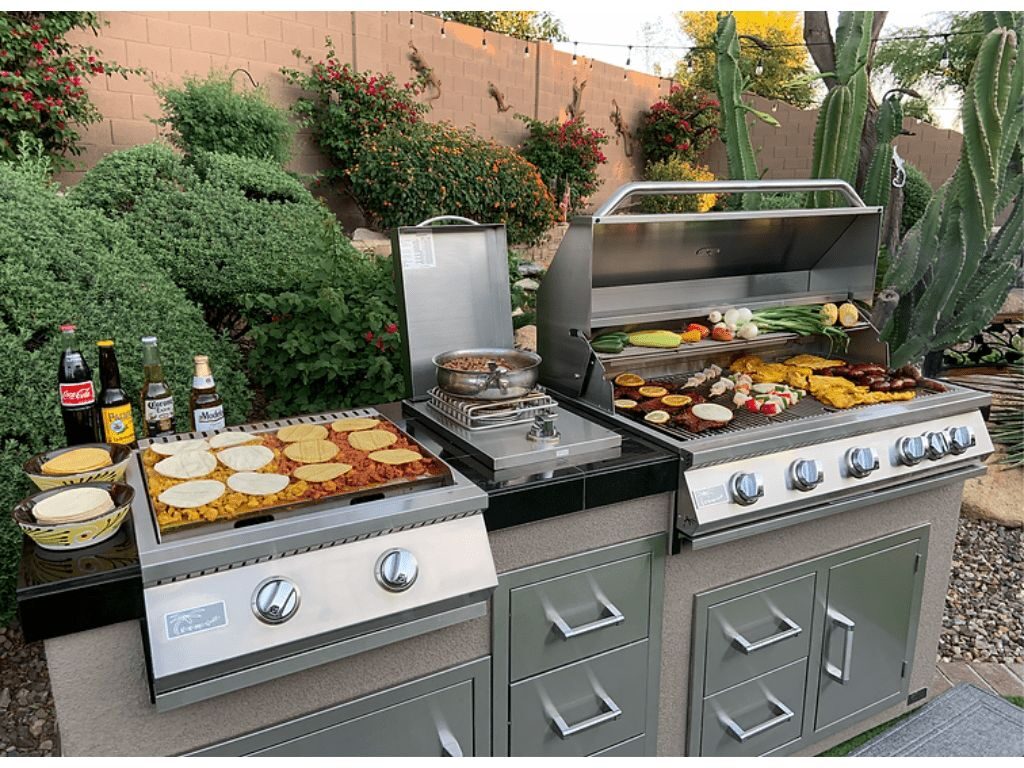
If you grill often, grease and debris pile up. This buildup traps moisture, rusts the metal, and eventually breaks it down. Over time, it forms thick carbon layers that are nearly impossible to remove.
Flare-ups become common. As grease heats up, it drips and ignites, creating bursts of flame. These sudden fires can burn food or, worse, cause injury.
Food quality suffers, too. You’ll notice a bitter aftertaste, especially with delicate items like vegetables or fish. Dirty grates also make food stick, which tears off chunks and leaves half your dinner behind.
When is the best time to clean grill grates?
Right after cooking—while the grates are still warm but not hot.
The best time to clean grill grates is immediately after use, while the heat helps soften residue and makes scrubbing easier.
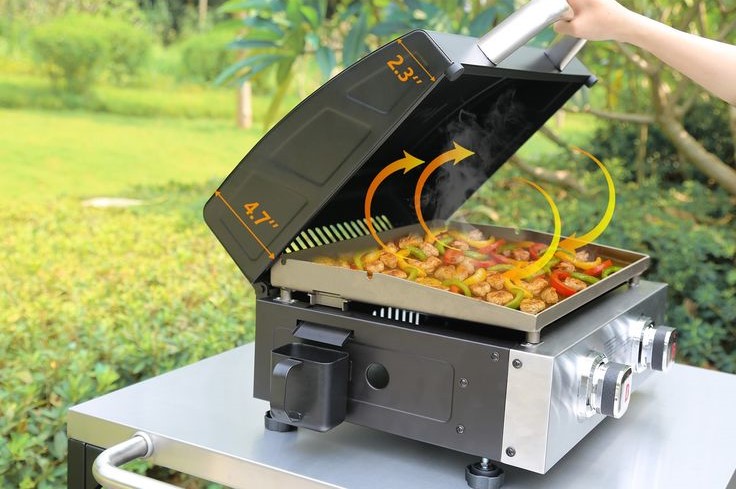
Cleaning warm grates cuts your workload. Heat loosens fat and carbon, so you don’t need harsh chemicals or heavy tools. Just grab a brush and wipe off the loosened debris.
Waiting until the grill is cold makes cleaning harder. Grease hardens and sticks more, especially on rougher grate surfaces like cast iron. The longer it sits, the more effort it takes.
After a short scrub, you can also apply oil to season the grates and protect them from moisture. This habit will extend the life of your grill and keep food tasting fresh.
Can you clean grill grates while hot?
Yes—but be careful. Heat helps remove residue faster, but avoid burns.
It’s safe to clean grates while warm—not hot—using a grill brush or aluminum foil held with tongs to scrub off food particles.
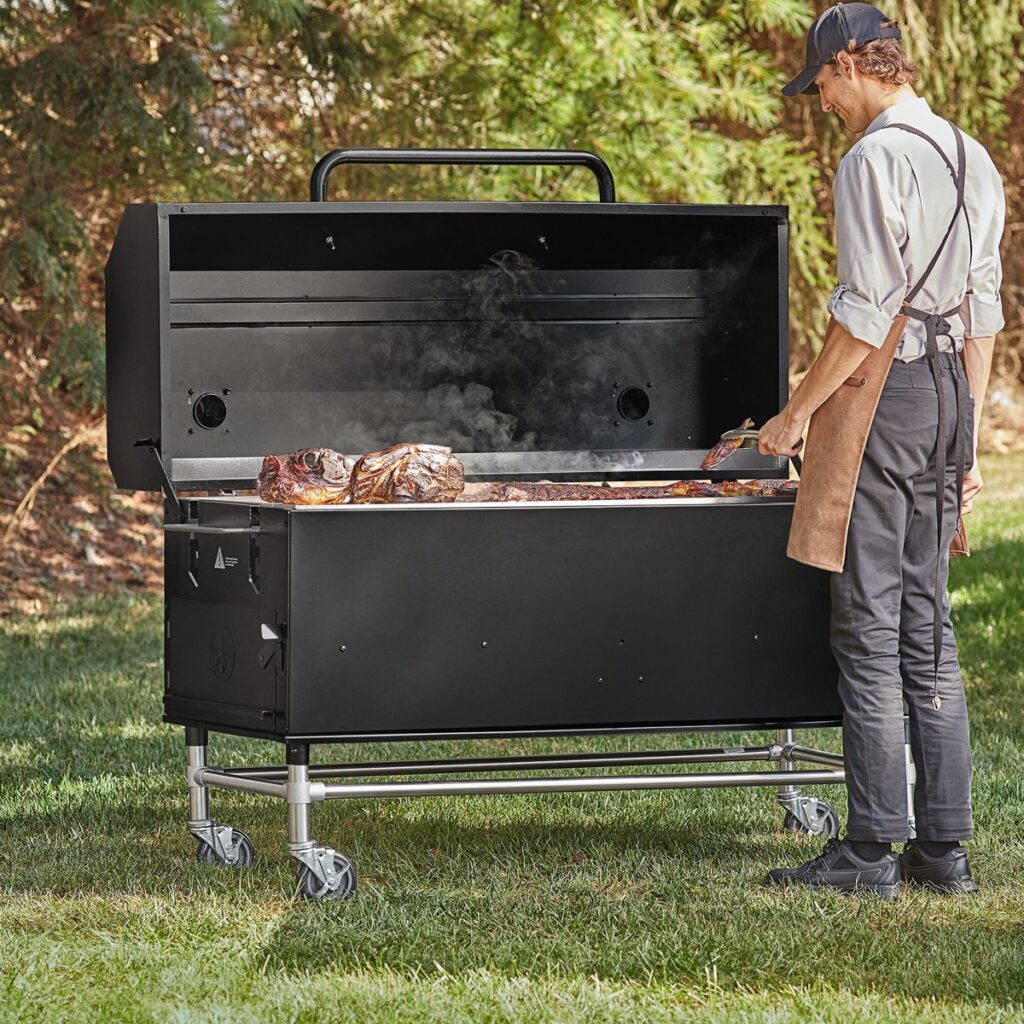
Use caution here. If your grill is still flaming, wait until it dies down. You want residual heat, not open fire.
Hold a ball of foil with tongs or use a wire brush. Move slowly across the grate. Heat helps melt off grease, and you’ll get cleaner results with less effort.
This method works especially well with steel or cast iron grates. Just be sure to avoid using too much pressure, which can scratch porcelain-coated surfaces.
It’s fast, safe, and keeps you from needing an intense deep clean later.
What tools work best for scrubbing grill grates?
Different tools suit different grates—steel, porcelain, or cast iron.
The best tools for grill grate cleaning include wire brushes, aluminum foil balls, and non-metal scrubbers for coated grates.
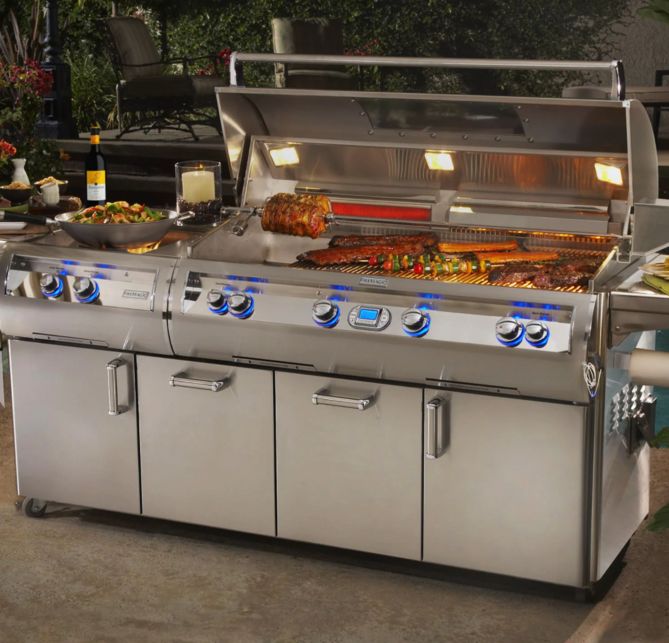
| Tool | Best For | Notes |
|---|---|---|
| Wire brush | Cast iron, stainless | Avoid on porcelain |
| Brass bristle brush | Porcelain grates | Softer, won’t scratch coating |
| Aluminum foil ball | All types | Great quick fix, no tools needed |
| Nylon grill brush | Light cleaning | Use only on cold grates |
| Grill stone or pumice | Deep cleaning sessions | Works on heavy carbon buildup |
Always pick tools based on your grate’s material. A wrong brush can strip protective layers. If you’re unsure, use foil or a brass brush—it’s safe for most types.
Replace brushes often. Bristles wear down and can break off, posing safety risks if left on grates.
Is baking soda safe for grill grate cleaning?
Yes—baking soda is a safe and effective DIY cleaner.
Baking soda breaks down grease and loosens residue naturally without damaging most grill grate surfaces.
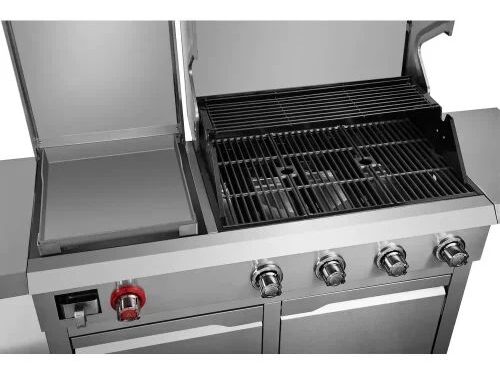
Mix it into a paste with water or dish soap. Apply generously to the grates. Let it sit for 20–30 minutes before scrubbing with a brush or foil.
The paste lifts up caked-on grime and softens stuck food. It’s gentle enough for porcelain but powerful on stainless steel and cast iron. For more strength, add vinegar—the reaction helps cut through grease faster.
This method avoids chemicals, making it ideal for grills used frequently or by families. After scrubbing, rinse thoroughly with water and dry completely.
How do you clean cast iron grill grates safely?
Cast iron needs extra care to prevent rust and keep flavor.
Clean cast iron grill grates by heating, brushing gently, and seasoning with oil to preserve their surface and prevent corrosion.
.jpg)
Avoid soaking cast iron in water. Instead, heat the grates, then use a stiff brush to scrape off food. Wipe them down with a damp cloth to remove grease.
Then, dry the grates completely. Cast iron rusts quickly if left moist. After drying, rub cooking oil across all surfaces. Heat the grates for 10 minutes to bond the oil and create a non-stick surface.
If there’s rust, scrub gently with steel wool, rinse, and repeat the seasoning step. Never use soap on cast iron—it strips the protective layer. Keep a routine, and these grates will last for years.
What is the fastest way to clean rusty grates?
Surface rust comes off easily with basic kitchen items.
Scrub rusty grill grates with vinegar and foil or baking soda paste, then rinse, dry, and oil to prevent new rust.
If rust is light, spray white vinegar on the grates. Let it sit for 15 minutes. Scrub with a foil ball or brass brush. For tougher spots, make a baking soda paste and apply it for 30 minutes before scrubbing.
Rinse thoroughly. Then dry and season the grates to keep rust from returning. If the rust goes deep or the metal flakes, it’s time to replace them.
Avoid leaving grates outside uncovered. Moisture is the enemy. A grill cover or indoor storage makes a big difference.
Can vinegar and foil clean BBQ grates well?
Vinegar and foil make a great budget-friendly combo.
Yes, spraying vinegar and scrubbing with foil removes grease, light rust, and residue without damaging the grates.
Just remove the warm grates, spray with white vinegar, and wait 10–15 minutes. Then take a crumpled foil ball, grip with tongs, and scrub the surface.
The acidity in vinegar breaks down fat and grime. The foil molds to the grate’s shape, getting into tight spaces. It’s a safe method for most materials.
Don’t forget to rinse and dry the grates afterward. This ensures no acidic residue stays behind.
Should grill grates be cleaned after every use?
Yes—light cleaning each time prevents big problems later.
Brushing off food and grease after each cook keeps buildup away and reduces the need for harsh deep cleaning later.
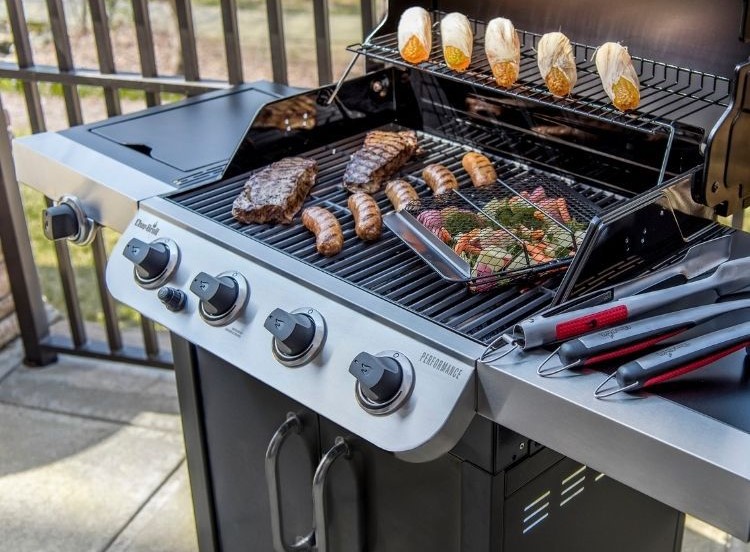
A quick scrub takes under 5 minutes. Just wait until the grill cools slightly. Then use a wire brush or foil ball to wipe away fresh residue. It’s much easier than scrubbing hardened gunk days later.
This habit stops grease from becoming a fire risk. It also keeps flavors clean between meals and extends grate lifespan.
Make this step part of your routine and you’ll save hours in the long run.
Conclusion
Clean grill grates lead to better meals, safer cooking, and a longer-lasting grill.
FAQs
Can I clean grill grates with soap and water?
Yes, but only for stainless steel or porcelain. Avoid soap on cast iron—it removes seasoning.
How do I remove black carbon buildup on grill grates?
Use a baking soda paste or vinegar soak, then scrub while warm with a wire brush or foil.
Can you put grill grates in the dishwasher?
No. Dishwashers can cause rust, warping, and leave greasy buildup inside the machine.
Is it okay to use oven cleaner on grill grates?
Only for deep cleaning steel grates. Rinse well afterward and avoid on coated or cast iron grates.
How do I know it’s time to replace grill grates?
If they’re cracked, flaking, rusted through, or permanently greasy, it’s time to replace them.
Should I oil my grates after cleaning?
Yes. Lightly oiling prevents rust and creates a non-stick surface for next time.
Does lemon work to clean grill grates?
It can. Lemon juice’s acid helps cut through grease, especially when combined with salt.
Can I use a pressure washer to clean grill grates?
It’s not recommended. High pressure can bend metal or chip coating, especially on porcelain grates.
